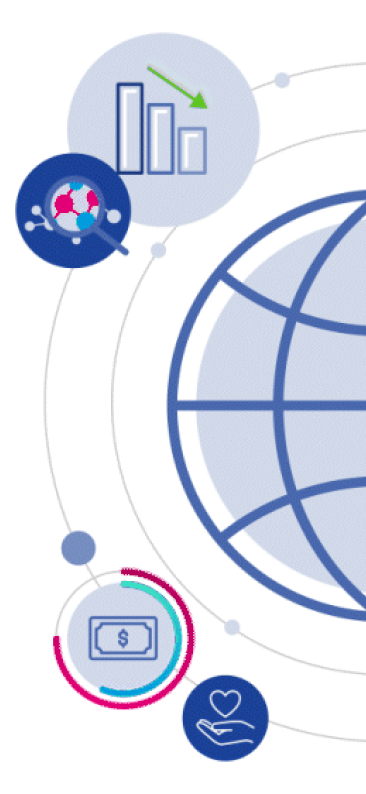What you should know about biosimilars
As more biosimilar medicines become available, it’s important to understand what they are and how they can have a positive impact on our health care system.
What are they?
Biosimilars are biologic medicines that have been developed to be highly similar to an already FDA-approved biologic, or reference biologic. Biologic medicines are large, complex molecules produced from living organisms, such as plant cells or animal cells.1,2
Get familiar with biosimilars
Biologics are complex in structure and generally expensive to manufacture.1,3
Biosimilars undergo testing to demonstrate there are no clinically meaningful differences in safety and effectiveness compared to the reference biologic.2
Biosimilars manufacturers submit data to the US FDA. The FDA then factors in all the provided data as the “totality of evidence” during the biosimilar approval process.2,4
Did you know?
Over 90% of physicians surveyed in 2021* said they believed that biosimilars have similar effectiveness and safety to the reference brand, and they have a high level of confidence in the FDA-approval process for biosimilars.
* A 2021 online Organon unpublished omnibus survey of US physicians (n=500) who were geographically dispersed and evenly comprising rheumatologists, oncologists, immunologists, gastroenterologists, and family practice/general practitioners.
Why were biosimilars developed?
Biosimilars present an opportunity to significantly reduce spending within the health care system by creating competition in the market and increasing access to these medicines.5,6
In 2021, brand biologics and specialty medicines represented 3% of all US prescriptions, but accounted for 55% of the net drug spending.6
To help provide patients with greater access to biologics, Congress passed the Biologics Price Competition and Innovation Act (BPCIA) in 2010, which created a pathway for drug makers to develop biosimilars.2
Where we are now and
where we’re going
The United States now has more than 20 biosimilars available, and by 2025, biosimilars are expected to generate health care system cost savings.5-8
Learn about the biosimilar impact
At a time when half of the world’s population lacks access to essential health services and global health spending outpaces economic growth, the promise of biosimilars cannot be ignored.6, 8
With an increased focus on biosimilars and deep biologics expertise, Organon aims to improve health care economies and treatment access by providing high-quality biosimilar medicines to health care systems, providers, and patients.5,9,10
At a time when half of the world’s population lacks access to essential health services and global health spending outpaces economic growth, the promise of biosimilars cannot be ignored.5,9,10
Other resources
FDA—What is a Biosimilar?
Helpful information from the FDA explaining what a biosimilar is.
Why Biosimilars matter video
One-minute video for anyone interested in why biosimilars matter.
Rigorous approval video
One-minute video for health care professionals that covers the rigorous biosimilar approval process.
